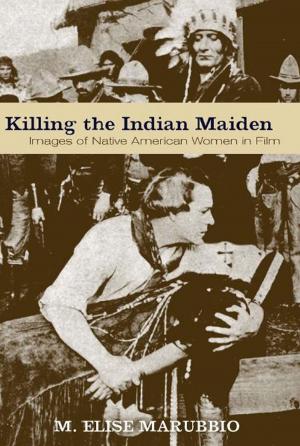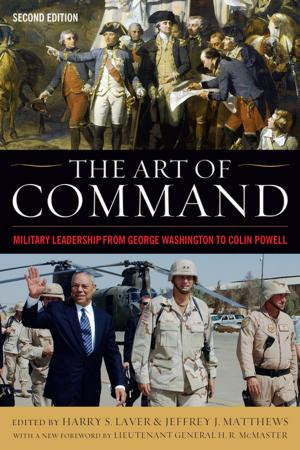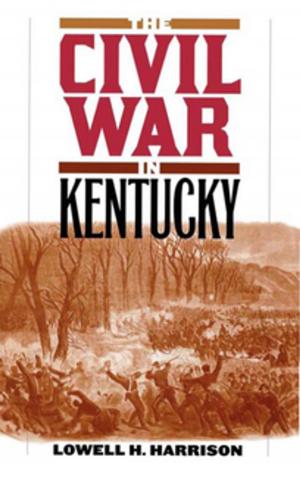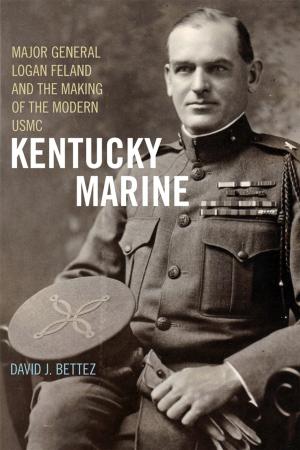Contested Borderland
The Civil War in Appalachian Kentucky and Virginia
Nonfiction, History, Americas, United States, Civil War Period (1850-1877), Military| Author: | Brian D. McKnight | ISBN: | 9780813141459 |
| Publisher: | The University Press of Kentucky | Publication: | September 5, 2012 |
| Imprint: | The University Press of Kentucky | Language: | English |
| Author: | Brian D. McKnight |
| ISBN: | 9780813141459 |
| Publisher: | The University Press of Kentucky |
| Publication: | September 5, 2012 |
| Imprint: | The University Press of Kentucky |
| Language: | English |
During the four years of the Civil War, the border between eastern Kentucky and southwestern Virginia was highly contested territory, alternately occupied by both the Confederacy and the Union. Though this territory was sparsely populated, the geography of the region made it a desirable stronghold for future tactical maneuvers. As the war progressed, the Cumberland Gap quickly became the target of invasion and occupation efforts of both armies, creating a chaos that would strain not only the soldiers but all those who called the area their home.
Contested Borderland examines the features of the region's geography and the influence of the attacks on borderlands caught in the crossfire of the Union and Confederate forces. The land surrounding the Kentucky-Virginia border contained valuable natural resources and geographic features considered essential to each army's advancement and proliferation. While the Appalachian Mountains barred travel through large parts of the region, the gaps allowed quick passages through otherwise difficult terrain and thus became hotly contested areas. Brian D. McKnight explores the tensions between the accomplishment of military goals and the maintenance of civilian life in the region.
With Kentucky remaining loyal to the Union and Virginia seceding to the Confederacy, populations residing between the two states faced pressure to declare loyalty to one side. Roadside towns found themselves the frequent hosts of soldiers from both sides, while more remote communities became shelters for those wishing to remain uninvolved in the conflict. Instead of committing themselves to either cause, many individuals claimed a neutral stance or feigned dedication to whichever side happened to occupy their land.
The dual occupation of the Union and Confederate armies consequentially divided the borderland population, creating hostilities within the region that would persist long after the war's conclusion. Contested Borderland is the first Civil War study exclusively devoted to the border separating eastern Kentucky and southwestern Virginia. McKnight's unprecedented geographical analysis of military tactics and civilian involvement provides a new and valuable dimension to the story of a region facing the turmoil of war.
During the four years of the Civil War, the border between eastern Kentucky and southwestern Virginia was highly contested territory, alternately occupied by both the Confederacy and the Union. Though this territory was sparsely populated, the geography of the region made it a desirable stronghold for future tactical maneuvers. As the war progressed, the Cumberland Gap quickly became the target of invasion and occupation efforts of both armies, creating a chaos that would strain not only the soldiers but all those who called the area their home.
Contested Borderland examines the features of the region's geography and the influence of the attacks on borderlands caught in the crossfire of the Union and Confederate forces. The land surrounding the Kentucky-Virginia border contained valuable natural resources and geographic features considered essential to each army's advancement and proliferation. While the Appalachian Mountains barred travel through large parts of the region, the gaps allowed quick passages through otherwise difficult terrain and thus became hotly contested areas. Brian D. McKnight explores the tensions between the accomplishment of military goals and the maintenance of civilian life in the region.
With Kentucky remaining loyal to the Union and Virginia seceding to the Confederacy, populations residing between the two states faced pressure to declare loyalty to one side. Roadside towns found themselves the frequent hosts of soldiers from both sides, while more remote communities became shelters for those wishing to remain uninvolved in the conflict. Instead of committing themselves to either cause, many individuals claimed a neutral stance or feigned dedication to whichever side happened to occupy their land.
The dual occupation of the Union and Confederate armies consequentially divided the borderland population, creating hostilities within the region that would persist long after the war's conclusion. Contested Borderland is the first Civil War study exclusively devoted to the border separating eastern Kentucky and southwestern Virginia. McKnight's unprecedented geographical analysis of military tactics and civilian involvement provides a new and valuable dimension to the story of a region facing the turmoil of war.















